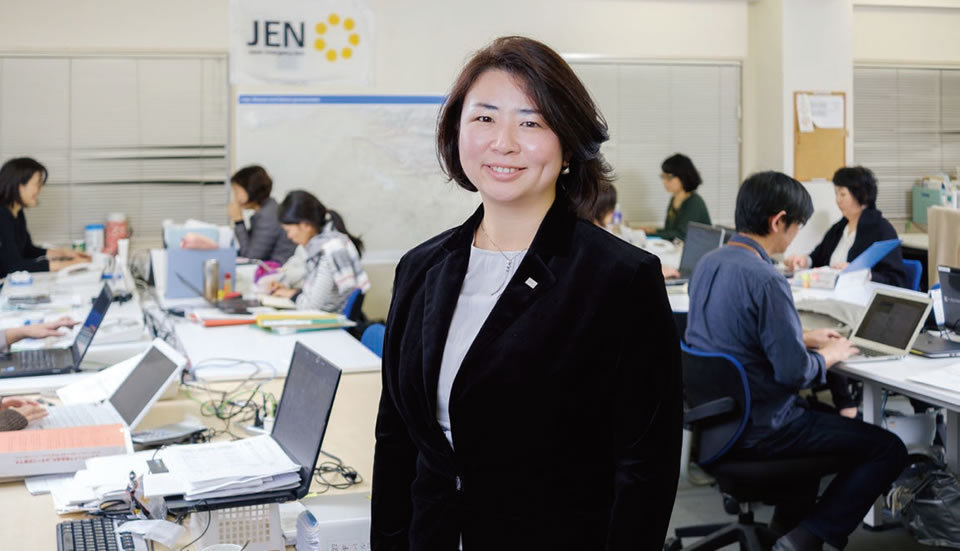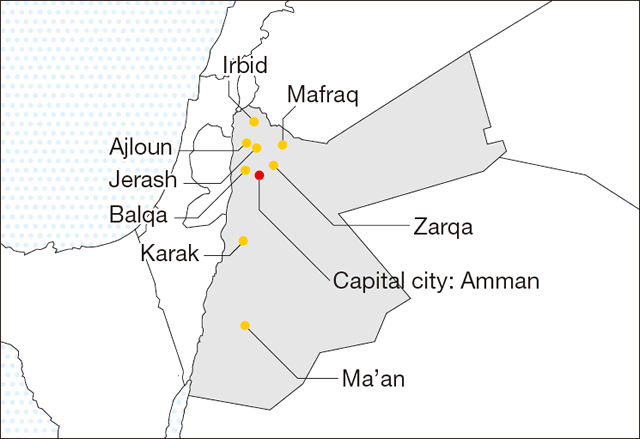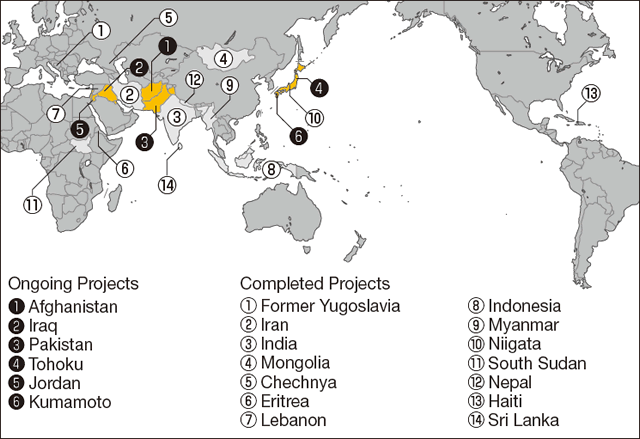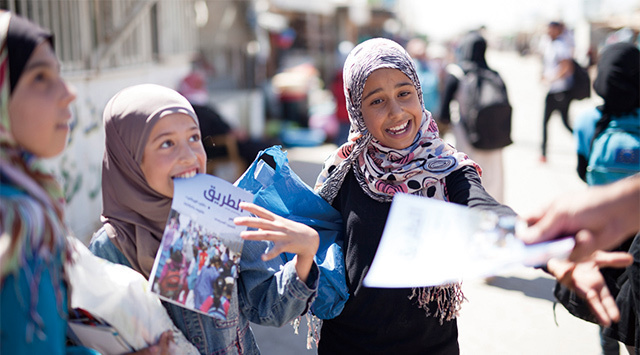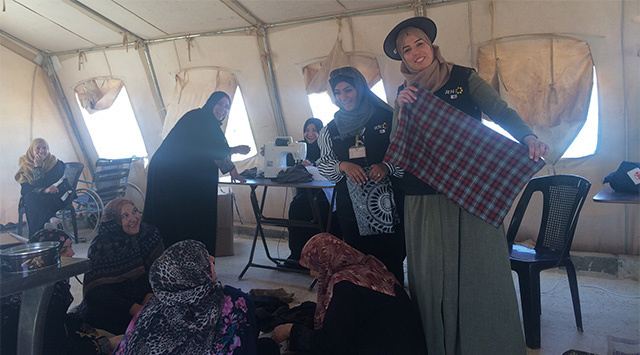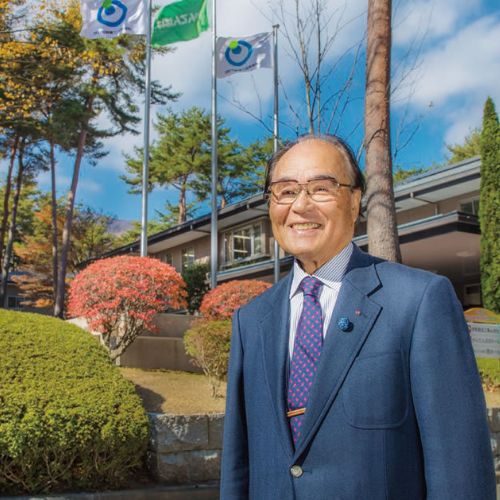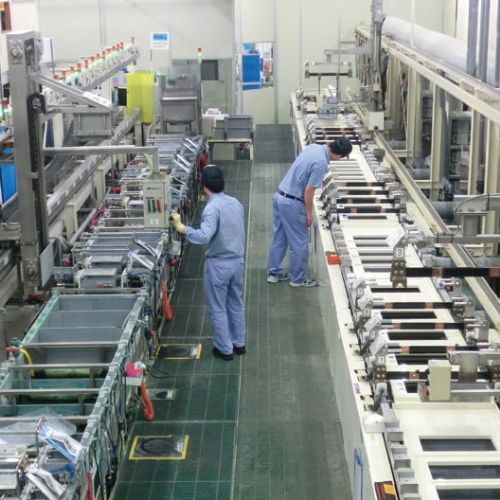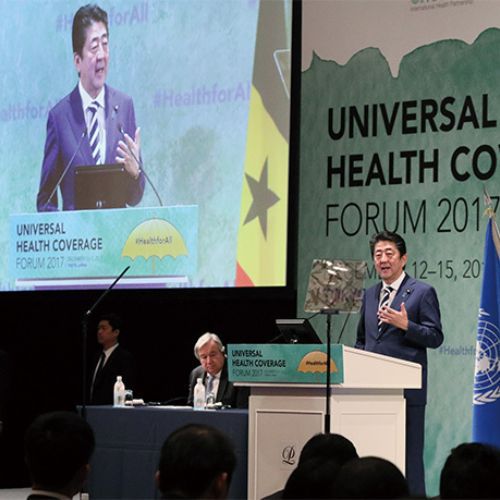Japan Emergency NGO ( JEN) is a Japan-based international nongovernmental organization (NGO) established in 1994, whose first mission was to provide emergency humanitarian assistance in Yugoslavia during the civil war. JEN has since worked in areas of conflict and disaster including Afghanistan, Iraq, and South Sudan. Responding to the needs in these areas, JEN dispatches personnel, distributes food, water and supplies, manages sanitation, promotes good hygiene, and provides psychosocial care. JEN also provides educational opportunities and vocational training.
Asuka Kuroki first volunteered with international NGOs on poverty issues when she was in high school. She recounts, “After graduating from university, I knew I wanted to work for an NGO in the future, but I thought I first needed to acquire professional experience and expertise, so I got a job in a private company.” She joined JEN in 2014 and is currently engaged in assistance work in Jordan, Iraq, and other countries as JEN’s secretary general. Kuroki stays on the move managing the organization. She describes JEN's activities as “supporting the power to live.” Realizing that refugees have been forced into their life of hardships, JEN seeks to restore the refugees’ dignity and help them move forward once again, rather than just providing food and material assistance.
JEN places value in people’s own capabilities and will, and reflects this belief in its work by having the refugees participate in the assistance projects. JEN focuses on project management, while encouraging the refugees to proactively engage in the projects.
Project in Jordan
More than 5 million people have fled their homeland due to the Syrian civil war. The number of these refugees in Jordan has reached 660,000. In addition to its work in Za'atari Camp (near Mafraq), set up in a desert area about 13 km (8 mi) from the Syrian border, JEN is implementing support activities in cities that have received refugees such as Amman and Irbid.
JEN project map
JEN has completed 14 projects thus far, and is currently implementing support activities in Jordan, Afghanistan, Pakistan, Iraq, and Japan (Tohoku and Kumamoto).
One such activity is JEN’s humanitarian assistance at the Za'atari refugee camp in Jordan. This camp, located in the desert, shelters 80,000 people that have fled the conflict in Syria. The camp is divided into 12 districts. JEN manages the water supply and sanitation for three of these districts. Its operations include the use of water supply vehicles. JEN organized a water sanitation management committee by recruiting volunteers from the refugees. The committee created a system for the camp residents to manage the camp’s sanitation facilities―the toilets, showers, and laundry areas―by themselves. This created momentum among the camp residents to improve their living environment. Also, infectious diseases and waterborne diseases spread easily in crowded camps, making it essential to maintain sanitary conditions on a daily basis. JEN recruited and trained volunteer hygiene promoters from the refugees. The hygiene promoters developed hygiene promotion activities to raise awareness and educate children, training them on how to wash their hands and brush their teeth and thereby prevent disease.
One of the hygiene promoters encouraged Kuroki by saying, “Participating in JEN’s activities has given me a real place in the life of the camp. I am so happy I can contribute to the community. I have also made new friends.”
Kuroki and her team hold a journalist-training workshop and vocational training to give hope for the future to young people facing a prolonged stay in the camp. This effort has borne fruit, as the young journalists now issue a monthly magazine called THE ROAD that disseminates useful information to camp residents.
“The magazine’s readers and the young people that publish it are refugees that have fled from the war. The fact that many of their fellow camp dwellers look forward to their magazine has given these young journalists a reason to live. Being sensitive to the needs of the community and the conditions of the people’s hearts and minds, along with supporting their efforts towards self-reliance, is what we place great value in. Knowing one has a role to play gives life meaning, something that every person desires. Regardless of nationality, religion, or place in life, we can empathize with the refugees, from their anxiety to their hope. This sense I feel through our activities, that the world can become one, empowers me,” concludes Kuroki.
The media projects of JEN, in addition to producing magazines, transmit videos produced by refugees to the world. "Flowers Blooming in the Desert" was nominated as a finalist in the United For Peace Film Festival 2016.

























